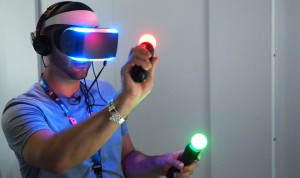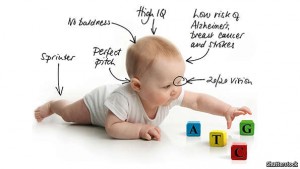As a teen who knows the bare minimum about Autism, I was interested in digging deep beyond the surface and obtaining more knowledge about those who have it, and how/if it can be cured. First and foremost, what is Autism? Autism is a mental condition present from early childhood characterized by difficulty in communicating and forming relationships with other people and in using language and abstract concepts. Autism does not run in my family in particularly, but I do have several friends that have relatives with Autism. From what I’ve discovered, many individuals believe that Autism is the result of the inability to properly break down peptides predominantly found in foods containing gluten and casein, causing rattling in the biochemical and neurological process. Biochemical evidence shows increased levels of peptides that have not been broken down after studying the urine of the individuals with Autism. Thus, the question arises. Can eliminating gluten from an Autistic child’s diet improve their behavior?
The Study:
In this particular study, children’s diets were monitored over a 5-month period of time, using parent/ teacher conference sessions, elimination of gluten from the individual’s diet all together, and monitored urine profiling. With lack of knowledge of where Autism develops from, people grasp for straws to help their children dealing with such a disorder. Urine tracking, particularly in this study, added a great deal of value to the experiment, using liquid chromatography (which is used to separate a sample into individual parts), found high level of peptides in the urine samples, primarily in food containing high levels of gluten. A total of 31 children were tested during this experiment, falling somewhere between the age range of 5-7 years old, all having different disorders such as Autism, Asperger’s, and spectrum disorders. The experiment consisted of straying participants away from gluten, and monitoring their diets consistently.
Correlation:
- Direct causation: Eliminating gluten from an Autistic child’s diet -> improvements in behavior
- Reverse causation: Eliminating gluten from an Autistic child’s diet <- improvements in behavior …. which doesn’t seem to be the correct solution here
- Third confounding variables: ?
- Chance…because chance is always a possibility
Conclusion:
Data from parental interviews and parental and teacher observations showed that some of the participants on the gluten free diet were reported as showing some improvement in autistic behaviors, after 3 months on the diet. When the 5-month experiment was completed, results showed an improvement in the vast majority of participants.
Bottom Line: Fixing the behavior of children with Autism is important, and is linked to a gluten free diet. The number of children being diagnosed with Autism is seemingly growing, therefore, more studies like the one analyzed in this blog need to conducted to test if the results are really just by chance, or if removing gluten from an Autistic child’s diet truly enhances behavior.
References:









